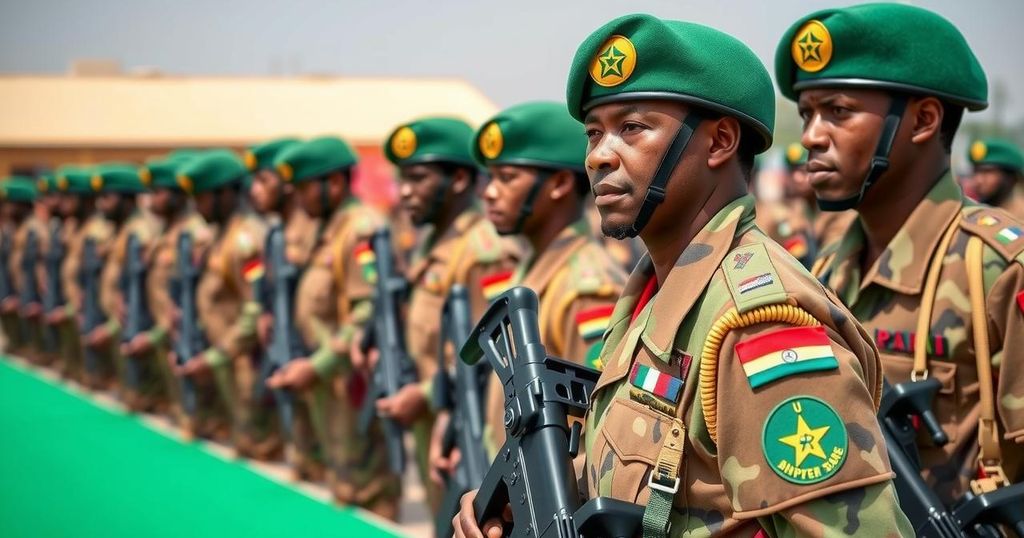Ethiopian troops have been approved to join the AUSSOM mission in Somalia after a visit by Defense Minister Aisha Mohammed Mussa to quell tensions stemming from a controversial naval base agreement with Somaliland. Recent discussions facilitated by Turkey emphasized respect for sovereignty and highlighted the importance of collaboration in combating Al-Shabaab’s influence.
Ethiopian troops have been authorized to participate in the African Union Support and Stabilization Mission in Somalia (AUSSOM) following a visit by Ethiopia’s Defense Minister Aisha Mohammed Mussa, which aimed to ease recent tensions. Despite previous resistance linked to a controversial agreement between Addis Ababa and Hargeisa for a naval base, Ethiopia’s ongoing support in combating Al-Shabaab remains crucial. Last month, a Turkey-mediated meeting facilitated an understanding between Ethiopia and Somalia, where both parties committed to respecting each other’s sovereignty and enhancing their bilateral cooperation.
Ethiopia has maintained a military presence in Somalia for over two decades, contributing approximately 10,000 personnel to stabilize the region against militant threats. The origins of tension stem from a deal between Ethiopia and Somaliland for a maritime base, which Somalia viewed as a potential violation of its sovereignty. The recent dialogue emphasizes the importance of collaboration and mutual respect between the neighboring countries and aims to ensure continued efforts against Al-Shabaab, which persists as a significant threat in Somalia.
The approval of Ethiopian troops for the AUSSOM mission comes amidst a complex backdrop of historical military cooperation between Ethiopia and Somalia. Over the years, the Ethiopian military has played a pivotal role in combating the Al-Shabaab insurgency, providing stability in a region plagued by violence and instability. However, a recent controversial agreement regarding a naval base has heightened tensions, complicating the military dynamics in the region. The involvement of external mediators, such as Turkey, underscores the intricate geopolitical relationships in the Horn of Africa. This collaboration between Ethiopia and Somalia represents a necessary step to not only address their security concerns but also to reinforce territorial integrity in a region where Al-Shabaab’s influence has not been fully eradicated. The agreement to work together on the AUSSOM mission aims to address these threats while respecting each country’s sovereignty.
In conclusion, the agreement allowing Ethiopian troops to engage in the AUSSOM mission signifies a critical development in the relationship between Ethiopia and Somalia. The recent diplomatic efforts, driven by high-level visits and international mediation, have notably contributed to easing prior disputes. The collaboration is essential for maintaining regional stability and countering the persistent challenges posed by Al-Shabaab. Moving forward, both nations appear committed to fostering stronger bilateral relations while ensuring the safety and security of the Somali population.
Original Source: www.garoweonline.com






